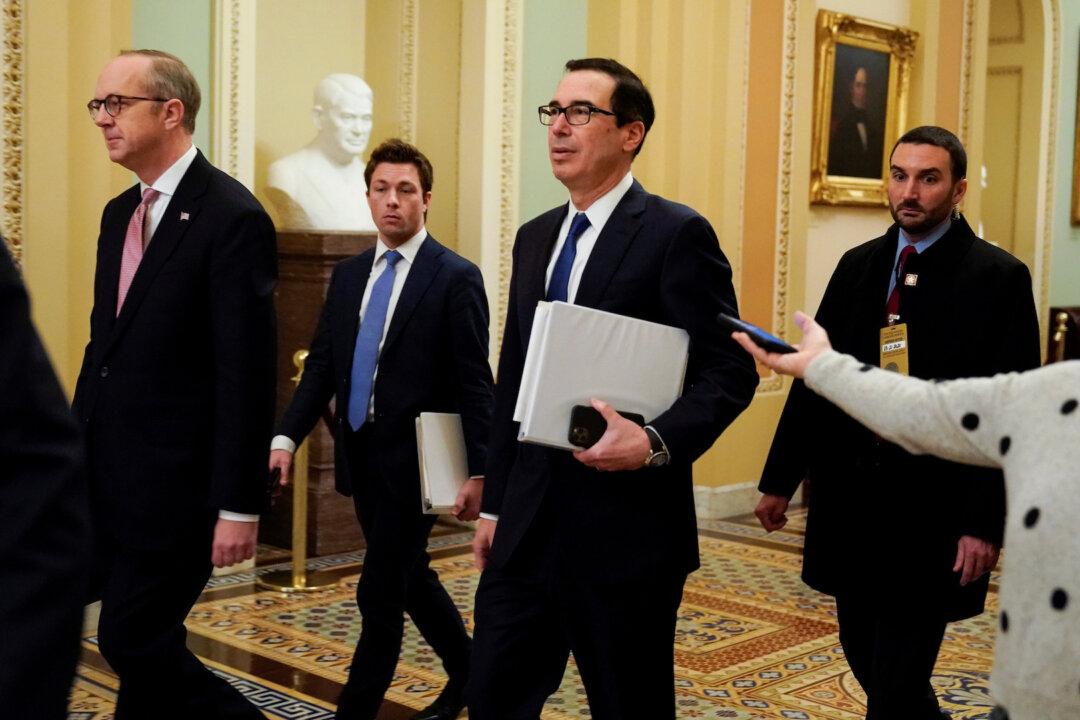WASHINGTON—The U.S. Treasury secretary and the Senate Democratic leader voiced confidence late on Monday for a deal to be reached soon on a far-reaching CCP virus economic stimulus package that had been stalled in the U.S. Senate as lawmakers haggled over it.
Negotiators made great progress on the bipartisan, $2 trillion stimulus measure on Monday, but without striking a final pact as they had hoped, Treasury Secretary Steven Mnuchin and Senate Leader Chuck Schumer (D-N.Y.) told reporters.





